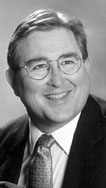The Vagabond recently looked at two baseball bats and a vendor badge that were used in the Gadsden Pilots games and owned by Grover B “Billy” Bowers, a player for the Pilots. Grover’s son was given these items. They later were given to his best friend, Richard Short, who lived a few doors down. These items were recently donated to the Etowah Historical Society. Richard is the father-in-law of Cherokee County historian Tommy Moon.
Richard remembers the Gadsden Pilots games and how vendors wore the badges. He said that they used to rent out cushions for 10 cents at the main gate to sit on, and everyone returned them at the end of the game. Richard also remembered seeing Grover Bowers played many times at Pilot games while Grover was living in Alabama City.
The Gadsden Pilots were a minor league baseball team based in Gadsden that played in the Southeastern League from 1938-1950. No team was fielded from 1942-1945 because of World War II.
In the late 1940s, the Pilots were one of eight teams in the Class B Southeastern League.
One of the teams – the Pensacola Flyers – was from Florida, and three – the Vicksburg Billies, the Jackson Senators and the Meridian Millers – were based in Mississippi. There were four Alabama teams – the Anniston Rams, the Selma Cloverleafs, the Montgomery Rebels and the Gadsden Pilots.
Gadsden hosted several minor-league teams during the early 20th century with various names and in various leagues. The name ‘Pilots’ was not related to aviation, but instead was a holdover from the days of riverboat pilots on the Coosa River. Before World War II, professional baseball in Gadsden was played at the Coosa Ballpark in East Gadsden.
After the war, baseball moved to West Gadsden City Park, where the Jack Gaston Coliseum is located now on Meighan Boulevard. The building was constructed for Gadsden’s postwar revival of organized baseball.
The 1947 season seemed special both for the Pilots and their fans. Bill McGehee, a relative old-timer who pitched in one game that year, managed the team.
The names of those players of the 1940s still ring with magic over 70 years later – Grover Bowers, Bill Johnson, Mel Hicks, Roy Pinkston, Barney Bridgers, Art Luce, Ken Guettler, Jimmy McClure, Grover Resinger, Danny Radakovich, Billy Seal and Ray Willett.
One City Park anecdote involved Gadsden ophthalmologist Dr. Herman Frank, who was a regular attendee of Pilots games and had a box along the first base line. During one game, speedy center-fielder Grover Bowers was racing around second base on his way to a triple. The normally stoic Dr. Frank leaped to his feet, pointing at Bowers and shouted, “Look at him go! Look at him go!”
And go Bowers did.
Grover B. “Billy” Bowers was born on March 25, 1923 in Parkin, Arkansas. He signed with the Memphis Chicks of the Southern Association in 1943 and batted .290 in 80 games. The Chicks’ left-fielder entered military service on June 20, 1944. He served in Europe with the U.S. Army and received three combat stars.
Bowers returned home in 1946 and rejoined the Memphis team for spring training.
Optioned to the Gadsden Pilots of the Class B Southeastern League in April, Bowers batted .321 and was selected to the all-star team. Bowers was on fire with Gadsden in 1947, leading the league in runs scored, hits and total bases with a .375 batting average.
As a leftfielder in 1948, Bowers hit .346 with a 30-game hitting streak, during which he batted .434. At the end of the season, The Sporting News labeled Bowers “one of the brightest White Sox prospects.”
Bowers joined the White Sox at the start of the 1949 season and made his major league debut on April 24. Playing in 26 games, he batted just .192. He returned to Memphis in June, where he batted only .247 in 85 games.
In March of 1950, Bowers relinquished his chances at a major league career in favor of the pulpit. At his own request, he was released to Gadsden in order that he might return to his home in Arkansas each Sunday to preach. Bowers had threatened to quit if his request was denied, and the White Sox gave him his unconditional release.
Bowers spent the 1950 season with Gadsden but made a comeback bid in 1951, joining the Toronto Maple Leafs of the International League and even playing winter baseball in Venezuela.
But on July 3, 1952, Bowers was suspended by Toronto for leaving the club and returning to his home in Parkin. In a note to manager Joe Becker, Bowers indicated that financial worries and poor health had prompted the move.
He also requested to be traded to a Southern Association club to be nearer his home. Bowers was back with Toronto in August, but it was his last season in baseball.
Bowers coached college baseball for some time. In 1961, he led Rhodes College of Memphis to the NCAA Southwestern title, for which he was later inducted in the Rhodes College Athletics Hall of Fame.
During the 1970s, Bowers served as Recreational Director with Osceola City Council in Arkansas.
Grover Bowers passed away on Sept. 17, 1996, in Wynne, Ark. He was 73 years old.
At some point before his death, it was mentioned to Bowers that Gadsden was half-heartedly seeking a professional team again. Grover replied, “Gadsden should have professional baseball. It’s a good baseball town, and the people there deserve a baseball team.”
Evidently, Bowers didn’t forget Gadsden. The town hasn’t forgotten him either.





